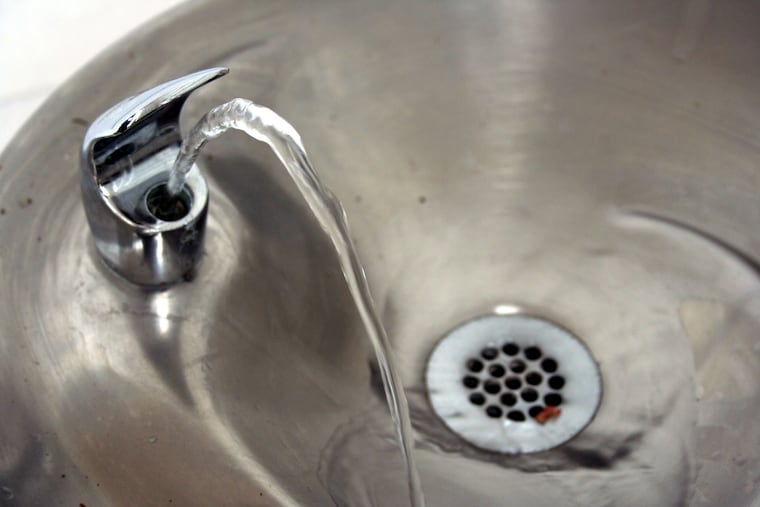Philly schools are getting $5 million to ensure students have clean drinking water
“In 2022, it’s not too much to ask that schoolchildren have drinking water that is entirely lead free — in fact, it should be essential," City Councilmember Helen Gym said.

The Philadelphia School District won a $5 million grant from the United States Environmental Protection Agency to accelerate its clean-water efforts, officials announced Friday.
The money will pay for 755 water-filtration stations inside schools, as well as kitchen sink filters and water sampling, as well as clean-water training and education to benefit the school system’s 114,000 students. The money comes from the Water Infrastructure Improvements for the Nation Act.
More than 1,500 “hydration stations” have already been installed in the district; this will speed the efforts to have one filtered-water station per every 100 students, and at least one on every floor of the district’s 216 schools.
“We are grateful to the EPA for its confidence in our plan for installing additional hydration stations to improve environmental safety in our schools,” Superintendent Tony B. Watlington Sr. said in a statement. “This grant will allow us to expand and accelerate this important work to reduce risk and keep our students well hydrated, which is so important for growing, healthy minds and bodies.”
Terraphase Engineering, a national environmental firm that specializes in school programs, will work with the district on a four-year plan. The company will test all drinking water outlets, remediate those with lead levels over 10 parts per billion, and install the hydration stations.
City Council this spring passed a law requiring the district to remove all lead from its drinking water by 2025, a measure sponsored by City Councilmember Helen Gym.
A group of parents and environmental advocates in February released a study based on publicly available data that concluded that citywide, 61% of water sources tested in schools contained lead, and 98% of tested schools had some lead-containing water.
District officials disputed that study at the time, saying it did not accurately represent the quality of water available to Philadelphia students.
Though city law sets a 10-parts-per-billion limit to the amount of lead permitted in school drinking fountains, the American Academy of Pediatrics and other organizations say there is no safe lead level, given the element’s effects on children’s health. Even low levels of lead can cause behavior problems and lower a child’s IQ.
Gym, who has long pushed for action on clean water and other environmental issues, said the grant was a good step, but “in 2022, it’s not too much to ask that schoolchildren have drinking water that is entirely lead free — in fact, it should be essential.”
David Masur, a district parent and executive director of PennEnvironment, said it was “incredibly exciting” to see the funds coming to Philadelphia schools.
“We’re glad to see district officials moving quickly to tap into federal funding opportunities to comply with the new standards and protect our children’s health,” Masur said in a statement. “We hope other municipalities in the Delaware Valley will follow Philadelphia’s leadership, and publicly commit to replace all old-style drinking fountains with lead filtering hydration stations by 2025 in order to help protect the region’s kids from the threat of lead contamination.”
The Philadelphia Inquirer is one of more than 20 news organizations producing Broke in Philly, a collaborative reporting project on solutions to poverty and the city’s push toward economic justice. See all of our reporting at brokeinphilly.org.